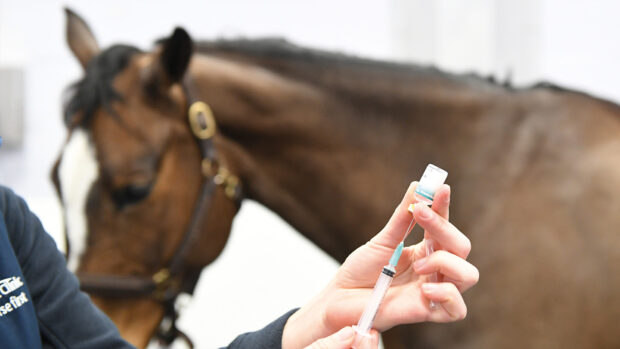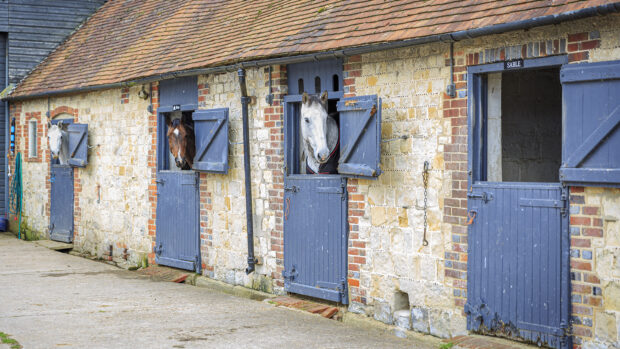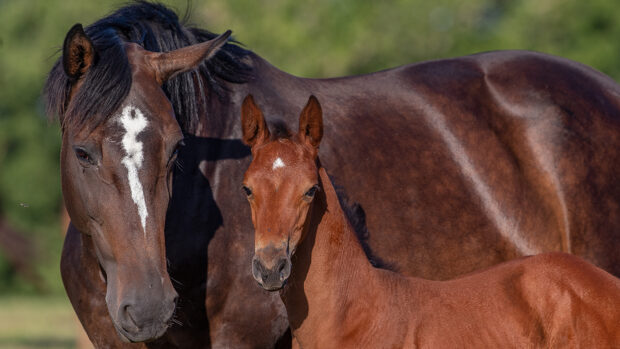The Animal Health Trust is calling for all horse owners to regularly vaccinate their animals against equine herpes (EHV), after an isolated case of the paralytic strain of the disease affected a horse on a small private yard in Kent.
“While any outbreak of equine herpes results in an increase in the number of horses being vaccinated, we would like to see an ongoing vaccination program with owners acting to combat equine herpes in the same way as they do equine ‘flu and tetanus,” explains Vivienne Irwin of the Animal Health Trust.
“A one-off vaccination in response to a current outbreak is of next to no use, and could be dangerous if the horse is already incubating the virus. Horses need to be routinely vaccinated, ideally from an early age, if the spread of the common respiratory form of the disease is to be controlled.”
However, current vaccines are not registered as effective against the virus in its rarest neurological form. And this is the crux of the matter, as most owners are primarily concerned about the life-threatening paralytic strain of the virus (EHV1), which is also responsible for respiratory disease in all horses and abortion in pregnant mares.
Despite this, Karen Coumbe, of veterinary practice Bell Equine, in Kent, believes that vaccination would reduce the incidence of the virus in every form.
“While the vaccine doesn’t fully protect against the paralytic form of the virus, if enough horses were vaccinated, it would help improve herd immunity and therefore the likelihood of any horses suffering,” she says.
A recent survey by HHO showed that, although the vast majority of horse owners routinely vaccinate against equine ‘flu and tetanus, less than one-sixth routinely vaccinated their horses against EHV.
This may be because vaccination against equine ‘flu is compulsory for all competition horses, but there is no such requirement for EHV1 or EHV4, the other strain of the herpes virus, which causes respiratory problems and sometimes abortion, but not paralysis.
Vivienne stresses: “People are most likely to come in contact with the respiratory form of the virus, resulting in a loss of performance or enforced time off for your horse. The vaccine is very effective against the respiratory effects of the virus, so vaccinating is the sensible thing to do. Also if more horses were vaccinated it would help to limit the spread of the disease.”




